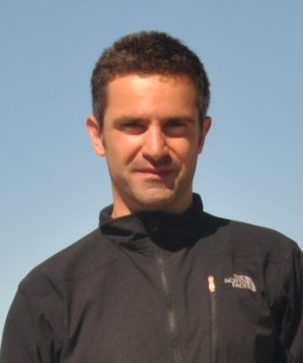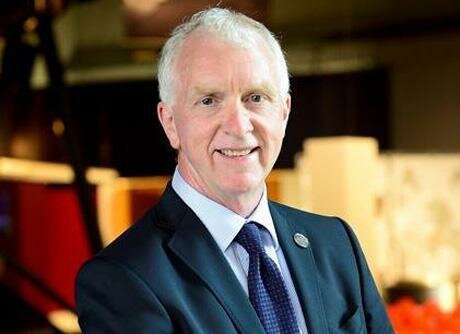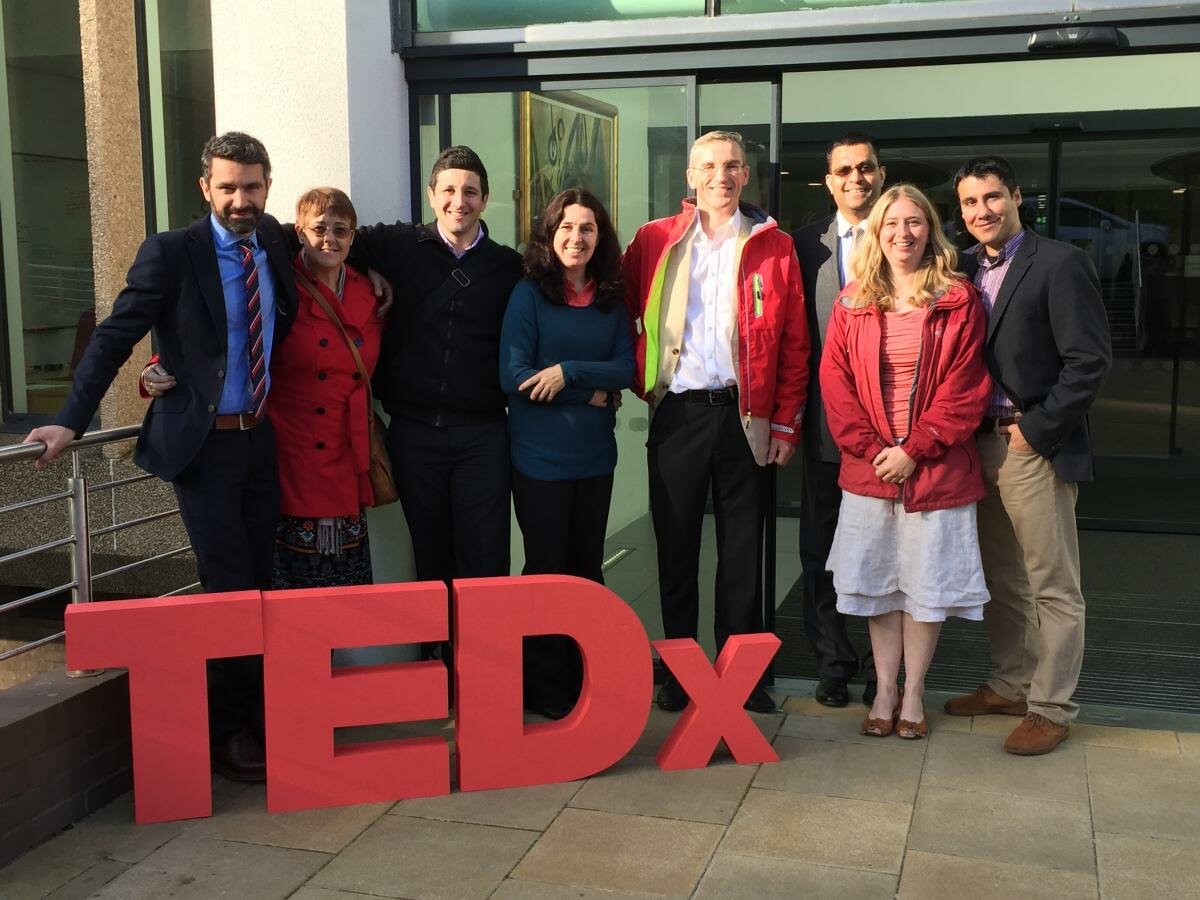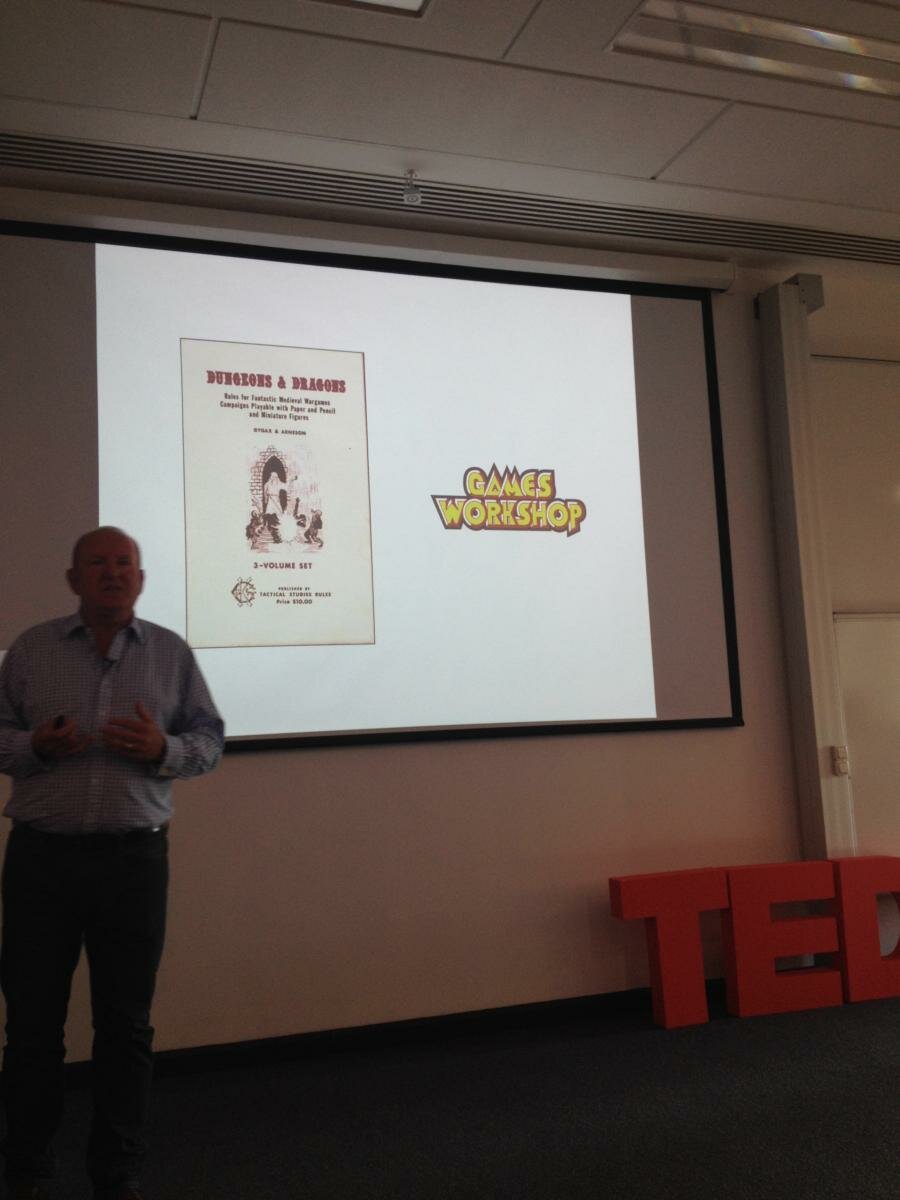A symposium on Innovation in the Games Industry with dissemination of research output from year two of the project followed by a TEDxDurhamUniversitySalon event on Innovation and Gamification. To be held at Durham University Business School. The TEDxDurhamUniversitySalon event hosts keynote talks by Ian Livingstone and Dr Sam Devlin.
Schedule
NEMOG Symposium
1:30-2:00 Registration and Coffee
2:00-2:05 Welcome and Introduction by Professor Kiran Fernandes
2:05- 2:15 NEMOG: Progress so far by Professor Peter Cowling
2:15-2:40 Digital-games Industry Demographic Analysis by Dr Nikolaos Goumagias
 I am going to initiate my talk by drawing a map of the video-game industry’s business model ecosystem through the development of a hierarchical classification of the industry’s business model archetypes, and how through the structure of portfolios of archetypes, according to the industry’s value chain, a company can map its future trajectory. I enrich the map by attempting a full-scale demographic analysis of the UK’s video-game industry, by shifting the viewpoint on two broad types of companies, namely publishers and developers. I perform an empirical investigation of the industrial entrepreneurship dynamics and mechanisms and how those are affected by organisational, environmental and geographical related factors, via a survivability-focused analysis. The analysis can provide very useful insights to the decision process of start-ups and new entrepreneurial endeavours along with a set of a broader set of regional policy implications directly related to the UK’s video-game industry.
I am going to initiate my talk by drawing a map of the video-game industry’s business model ecosystem through the development of a hierarchical classification of the industry’s business model archetypes, and how through the structure of portfolios of archetypes, according to the industry’s value chain, a company can map its future trajectory. I enrich the map by attempting a full-scale demographic analysis of the UK’s video-game industry, by shifting the viewpoint on two broad types of companies, namely publishers and developers. I perform an empirical investigation of the industrial entrepreneurship dynamics and mechanisms and how those are affected by organisational, environmental and geographical related factors, via a survivability-focused analysis. The analysis can provide very useful insights to the decision process of start-ups and new entrepreneurial endeavours along with a set of a broader set of regional policy implications directly related to the UK’s video-game industry.
2:40-3:05 Business Model Innovation in the Games Industry by Dr Alberto Nucciarelli
 My talk coalesces around my two main research topics within NEMOG. First, I explain to what extent the digital game industry value chain is changing under the effects of reward-based crowdfunding campaigns led by independent developers. This form of crowdfunding allows fund seekers to receive financial support from the crowd in exchange with products or other perks. However, the benefit of using crowdfunding goes well beyond fundraising and in some sectors it enables the validation of product ideas, co-development with customers, and product pre-sale. In the game industry crowdfunding has transformed the value chain by tapping into the relationships between game developers and industry stakeholders. Second, I illustrate the interdependences among the business model choice, its success and the customer’s identification and engagement in the game industry. It is in fact rather crucial that the business models choice acknowledges the “dimensionalization” of customers about products and services by taking into account – at the same time – who pays and uses them, as well as who takes (functional, practical and psychological) benefits from them. To tap into this, I bring the analysis of value creation and capture within the debate on business model innovation and bridge it with the marketing literature on how to dimensionize customers. Thus, I define the links between value creation and capture, and understand how they change when customers’ identification and engagement vary.
My talk coalesces around my two main research topics within NEMOG. First, I explain to what extent the digital game industry value chain is changing under the effects of reward-based crowdfunding campaigns led by independent developers. This form of crowdfunding allows fund seekers to receive financial support from the crowd in exchange with products or other perks. However, the benefit of using crowdfunding goes well beyond fundraising and in some sectors it enables the validation of product ideas, co-development with customers, and product pre-sale. In the game industry crowdfunding has transformed the value chain by tapping into the relationships between game developers and industry stakeholders. Second, I illustrate the interdependences among the business model choice, its success and the customer’s identification and engagement in the game industry. It is in fact rather crucial that the business models choice acknowledges the “dimensionalization” of customers about products and services by taking into account – at the same time – who pays and uses them, as well as who takes (functional, practical and psychological) benefits from them. To tap into this, I bring the analysis of value creation and capture within the debate on business model innovation and bridge it with the marketing literature on how to dimensionize customers. Thus, I define the links between value creation and capture, and understand how they change when customers’ identification and engagement vary.
3:05-3:30 Keynote by Professor Roy Sandbach
Speaker Bio:

Roy is Chair of the Innovation Board for the North East Local Enterprise Partnership and developed the region’s innovation strategy as part of the Strategic Economic Plan. Until 2012, Roy held senior global R&D positions with the Procter & Gamble Company. He patented several new-to-the-world products. One of these is a 100MM$ business in the United States. Roy holds visiting Professor positions with Northumbria University Business School, at Cranfield University and with Central St. Martin’s College of Art & Design, London. Roy is non-executive director of Arnia, a start-up with leading edge beehive monitoring technology, and NCFE, the national vocational awarding body. He is Fellow and President-elect of the Royal Society of Chemistry Industry Council and sits on the Science & Innovation Board of the National Centre for Universities & Business.
3:30-4:00 Coffee Break


4:00- 4:20 Keynote: Collective Game Intelligence by Dr Sam Devlin
Collective Game Intelligence is knowledge gained through the analysis of data generated by players worldwide whilst playing games. Given the increasingly ubiquitous presence of an internet connection, the analysis of vast quantities of gameplay data is now possible. In this talk I will discuss the innovative ways data from digital games has been used to solve open scientific problems, to engage citizen scientists in data labelling and to extract scientific insights from people playing games originally developed purely for entertainment purposes.

Speaker Bio:
 Dr Sam Devlin received an MEng degree in Computer Systems and Software Engineering from the University of York, UK, in 2009. In 2013, he completed his PhD on multi-agent reinforcement learning at the University of York and visited Oregon State University funded by a Santander International Connections Award. His research interests are focussed on machine learning, multi-agent systems, artificial intelligence and game theory. He is currently a Research Associate in the York Centre for Complex Systems Analysis (YCCSA), and is working on data mining/analytics.
Dr Sam Devlin received an MEng degree in Computer Systems and Software Engineering from the University of York, UK, in 2009. In 2013, he completed his PhD on multi-agent reinforcement learning at the University of York and visited Oregon State University funded by a Santander International Connections Award. His research interests are focussed on machine learning, multi-agent systems, artificial intelligence and game theory. He is currently a Research Associate in the York Centre for Complex Systems Analysis (YCCSA), and is working on data mining/analytics.
4:20-5:20 Keynote: Life is a Game by Ian Livingstone
Ian will give an entertaining and visual account of his struggles as an entrepreneur in the 1970s when he and Steve Jackson set up Games Workshop, launched Dungeons & Dragons in Europe, and wrote the multi-million selling Fighting Fantasy gamebooks series. From analogue to digital, he will give a brief history of computer games, past, present and future, including the story of Lara Croft:Tomb Raider. He will conclude with how video games and game-based learning promote life skills, and how games contextualise computing and digital-making skills in schools.

Speaker Bio:
Ian Livingstone is one of the founding fathers of the UK games industry. He co-founded iconic games company Games Workshop in 1975, launching Dungeons & Dragons in Europe and the Games Workshop retail chain. He co-authored The Warlock of Firetop Mountain with Steve Jackson in 1982, and went on to write many titles in the Fighting Fantasy series which has sold over 17 million copies worldwide. He designed Eureka!, the first computer game published by Domark in 1984. He joined the board in 1992 as a major investor, overseeing a merger that created Eidos plc in 1995 where he served as Executive Chairman until 2002. At Eidos he launched global video games franchises including Lara Croft: Tomb Raider. He co-authored the influential Livingstone-Hope Next Gen review published by NESTA in 2011, recommending changes in ICT education policy. Following publication, he chaired the Next Gen Skills campaign, working with government to introduce the new Computing curriculum in schools in 2014. In the Wired 100 list for 2012, he was ranked the 16th most influential person in the UK’s digital economy. He was listed in the 2015 Debrett’s 500 as one of the most influential people in UK.
5:20-6:00 Q&A
6:20-8:00 Finger Food, Drinks and Networking
- Log in to post comments
